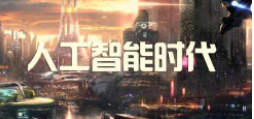On March 28th, the 5th Financial China V Forum, hosted by China News Corporation's new financial media, Xinjingwei, was held in Beijing. In the forum, around the theme of “Artificial Intelligence: Reality and Pictureâ€, many academics and industry experts discussed the opportunities and challenges facing the development of artificial intelligence and the future development direction. Let's take a look at the related content with the network communication Xiaobian. As a strategic new technology that leads the future development, artificial intelligence has become a new focus of international competition. In the view of Gong Ke, the former president of Nankai University and the executive director of the China New Generation Artificial Intelligence Development Strategy Institute, artificial intelligence must first be “pragmatically humanâ€. It serves people and serves the development of human and natural science. The development of artificial intelligence is to meet people's needs for a better life, which is a value that must be adhered to in the development of artificial intelligence. He pointed out that China's artificial intelligence technology and industrial development should follow a path of pragmatic development, rather than impetuous, noisy, and even illusory. Wang Tianmiao, honorary director and professor of the Institute of Robotics at Beijing University of Aeronautics and Astronautics, has the same view. According to the history of artificial intelligence, he pointed out that the development of artificial intelligence is not to completely simulate people, but to focus on the current social problems and the use of human intelligence. To solve it, you need to use a machine instead of something that people can't do. Liu Gang, chief economist of China's new generation artificial intelligence development strategy research institute and director of the Economic Research Institute of Nankai University, said that artificial intelligence is the core engine of the fourth industrial revolution. At present, China's smart economy ranks second in the world and ranks in the United States. after that. China has entered the era of intelligent economy, mainly driven by data and calculations, showing a very strong "polarization" and "diffusion" trend, mainly concentrated in Beijing Haidian District, Shenzhen Nanshan District, Hangzhou Yuhang District. In the future, the smart economy will promote the high-quality development of China's economy and build a modern economic system. Hu Liang, co-founder and senior vice president of Fast Niujinke, is confident in the application of artificial intelligence in the future. He said that although it is still a bit early to say that artificial intelligence will be the core technology of the next generation of industrial revolution, AI technology is widely used, and deep learning is currently the most mature. Even such a technology is a small part of it. Such as computer vision, translation, these technologies have become practical. "We have confidence in this, because the mature application time of this technology has become shorter and faster," he said. In practical applications, artificial intelligence technology also has a series of severe challenges to society and technology itself. Chen Changfeng, executive dean of the School of Journalism and Communication at Tsinghua University, pointed out that in the news communication industry, the application of artificial intelligence has become more and more popular, and robot writing is also widely sought after, but the application is still quite primitive, and most robots are still capable and unwise. State, what is engaged is basically unintelligible labor, and does not have the ability to judge value. News professionalism, especially the power of human value judgments, is hard to match. In addition, due to the powerful power of the algorithm, a user-oriented information dissemination mode is being formed, and the user-oriented information dissemination mode is far from the traditional mode of professional control. Hu Liang also believes that algorithms are a challenge for artificial intelligence technology. The artificial intelligence model is based on machine training. To improve accuracy, a very large number of samples are needed. If there is not so much data accumulation, it will bring certain obstacles to the artificial intelligence transformation industry and the upgrading of the industry. Artificial intelligence also challenges legal regulation. Yang Xiaolei, deputy dean of Peking University Law School, executive director of legal artificial intelligence laboratory and legal artificial intelligence research center, said to what extent should humans apply artificial intelligence? How to define robots and the relationship between humans and robots? How should humans be artificial intelligence? Legislation? These are legally important topics. For example, in the future, the production of home appliances in the Internet of Things will become a manufacturer's customized products according to user needs. If there is product or flaw caused by product explosion, how should it be defined? This is the challenge that artificial intelligence technology brings to us. In addition, artificial intelligence poses a certain threat to information security and privacy protection. "But in general, the problems brought by technology can be considered through technology. The technology itself is no problem, the problem is still human behavior, and the future will consider how to regulate people's behavior through some regulations, so that this technology can It can be used correctly," said Li Chunping, an associate professor at the School of Software at Tsinghua University. With the deepening of the application of AI in various industries, the demand for talents will become more and more intense. How to cultivate talents and retain talents is a difficult problem for the development of artificial intelligence. "It is not a simple problem of talent shortage. The most important thing is the need for cross-border talents and a combination of technology and industry." Wang Jinqing, chief expert of Tongdun Technology Insurance Technology Division, said. Yang Danhui, a researcher at the Institute of Industrial Economics of the Chinese Academy of Social Sciences, suggested that the state should introduce some strong incentives to retain talents and encourage them to serve China's artificial intelligence in a stable and long-term manner. Dongguan Guancheng Precision Plastic Manufacturing Co., Ltd. , https://www.dpowergo.com
March 19, 2023